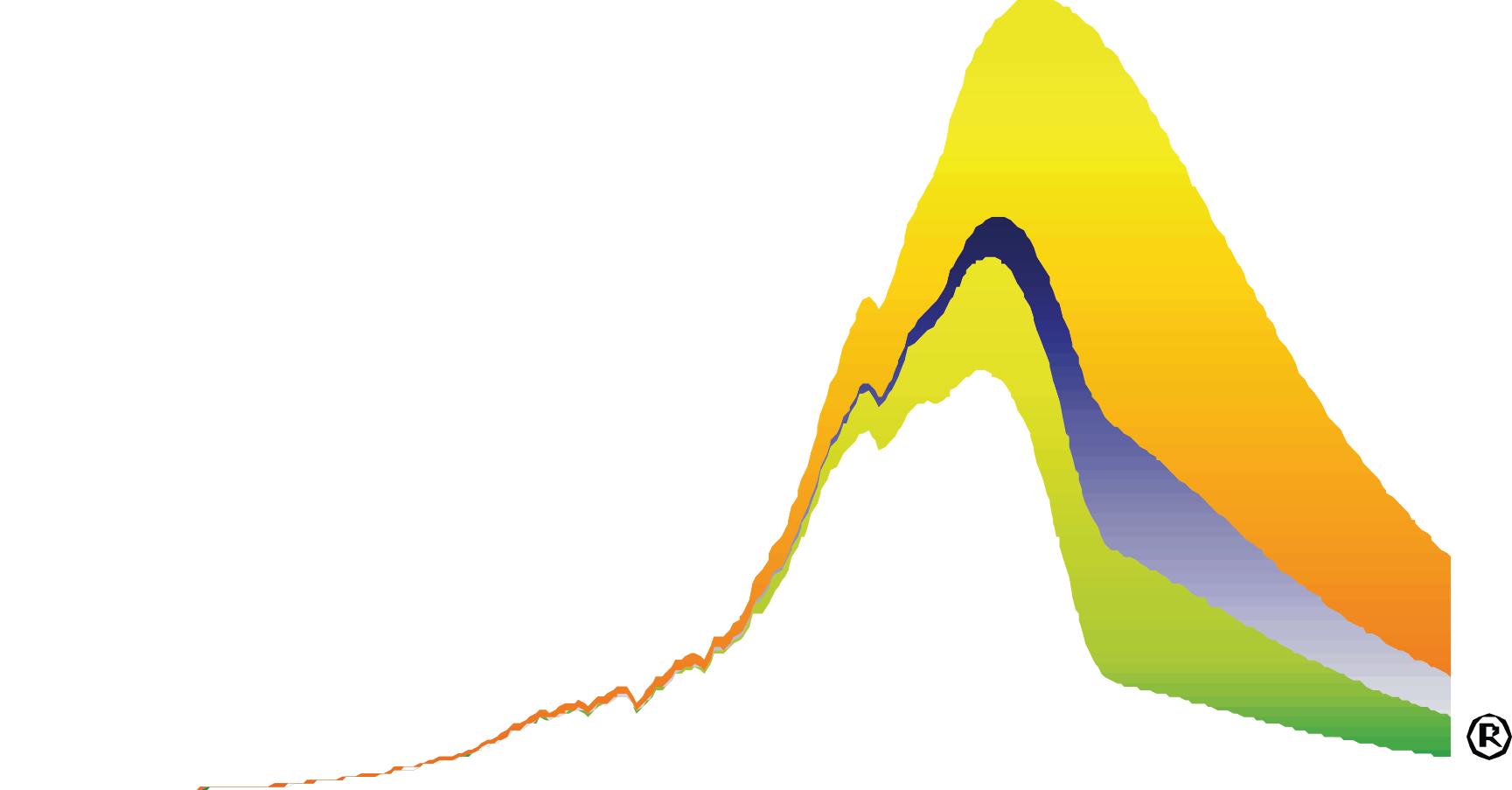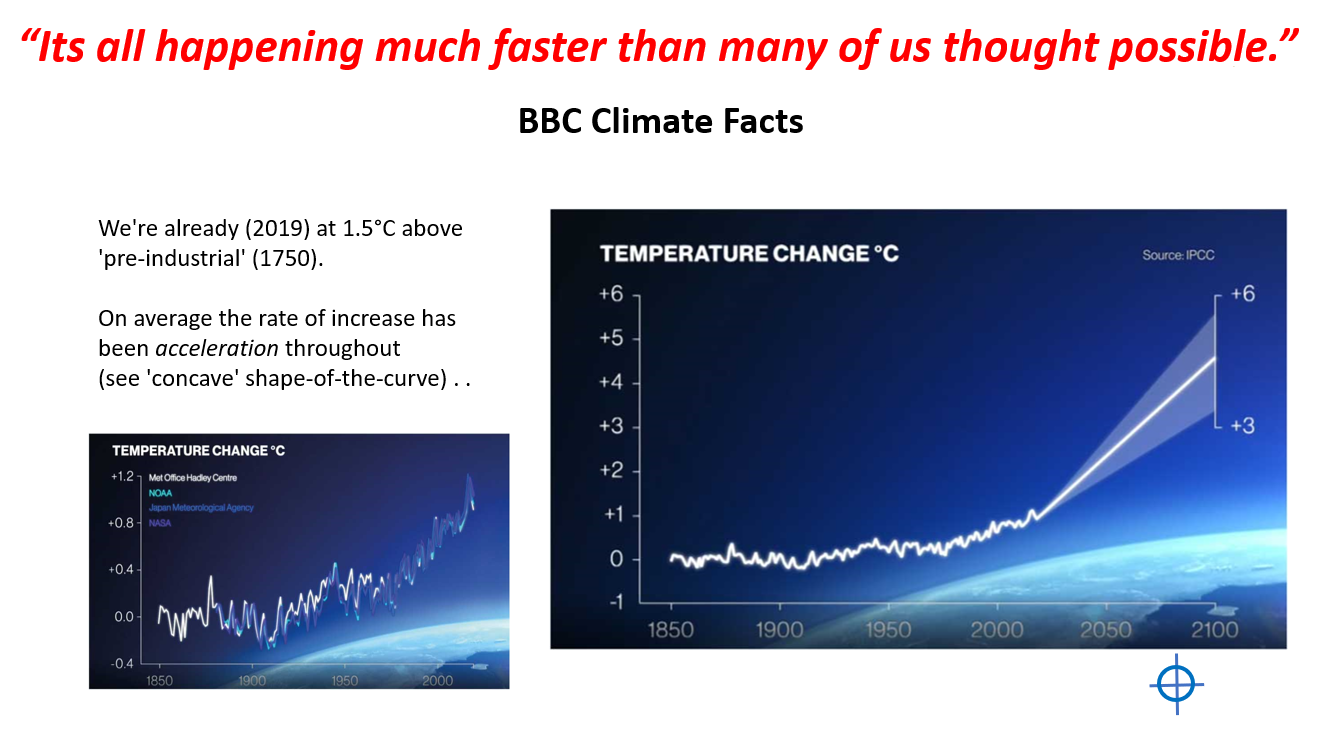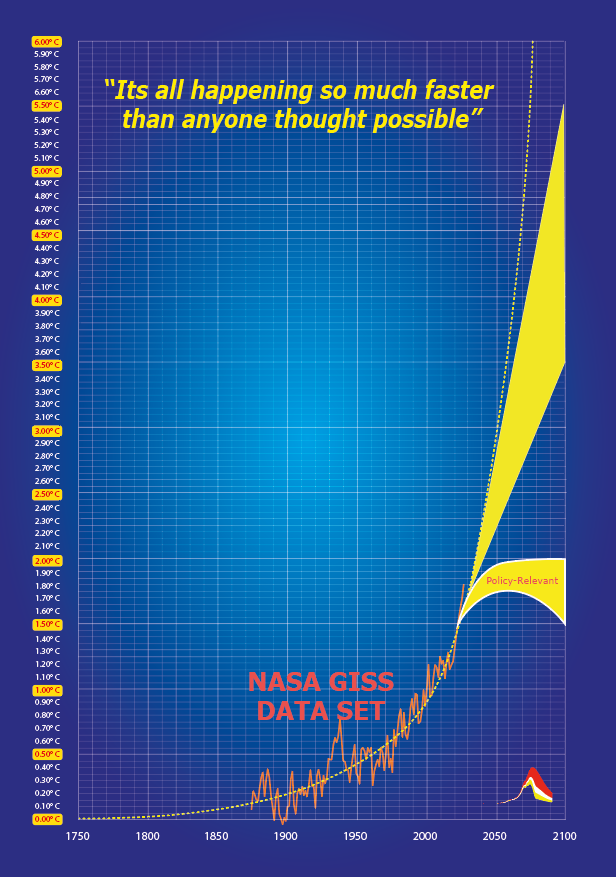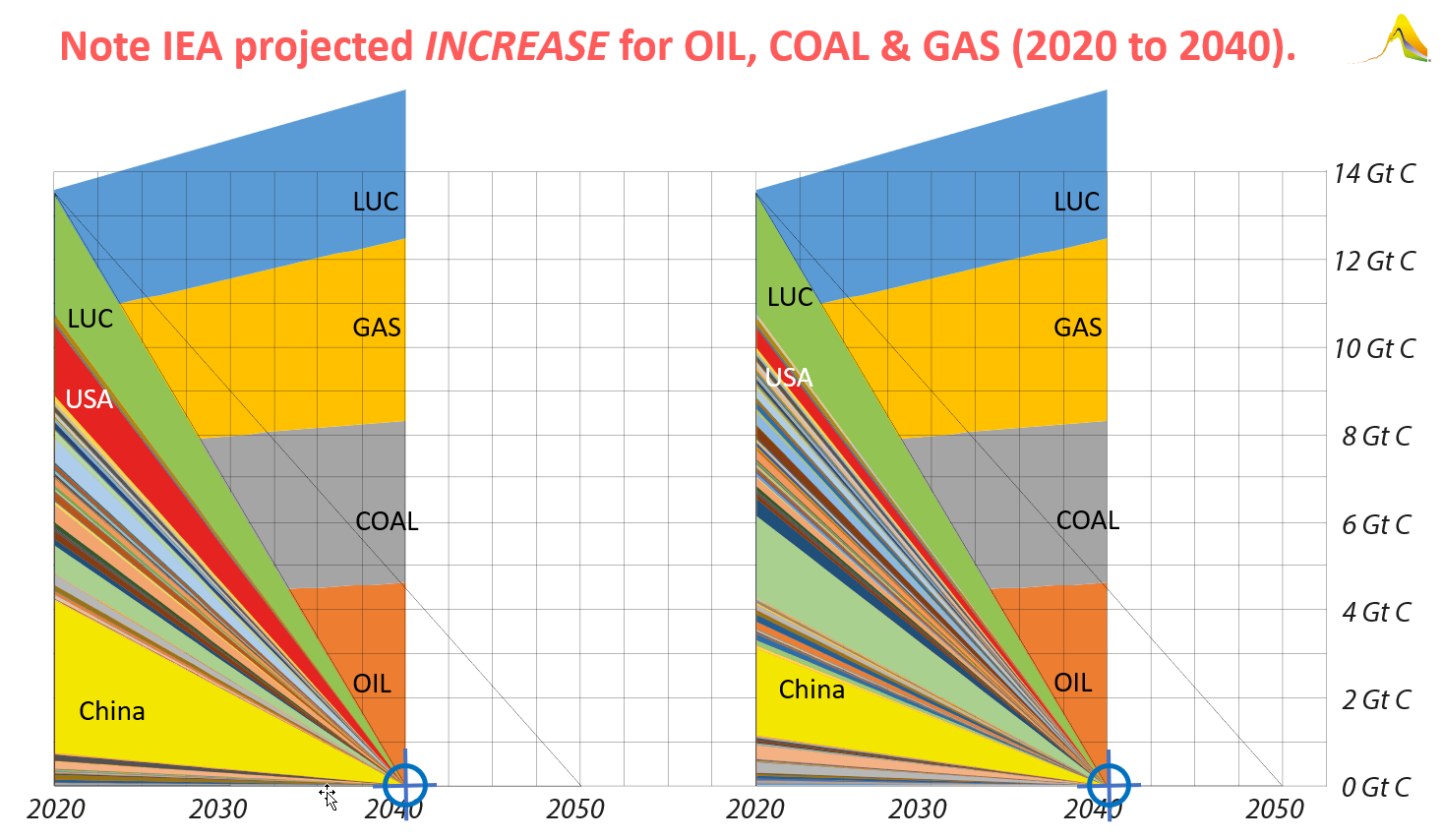EAC Carbon Budget Enquiries - were the models valid?
 Click logo to return to 'links-page'
Click logo to return to 'links-page'
At COP-2 (1996) GCI: -At COP-3 (1997): -
- stated the need to declare a climate emergency
- introduced the Contraction & Convergence (C&C) methodology to deal with it
- C&C was agreed in principle at COP-3 (1997)
Before COP-6 (2000): -
- C&C became the main recommendation of the RCEP report to the UK Government in 2000
- The UK Minister of Environment wrote to GCI agreeing the integrity of the C&C argument needs to be protected.
Before COP-15 (2008): -
*************************************************
- C&C was made the basis of the UK Climate Act of 2008
Dealing with the feedback-crisis the Carbon Budget Analysis Tool (CBAT) was presented to EAC Enquiries in 2013.
The analytical methodology of CBAT is the well-tempered basis that supports the Alliance for UNFCCC-Compliance.
UKMO falsely insisted all feedbacks were in their models.
*************************************************
- Environmental Audit Committee (EAC) 'Carbon Budget Enquiries' (2009 - 2013)
- Concerned about underestimating the risks that are faced with the rates of climate change
- GCI presented CBAT as a cognitive framework within which to address this issue of feedbacks
- GCI's concern was the omission from the climate models of RIAFE (Rapid Interactive Feedback Effect)
- and consequent omission of acceleration potential in key vectors of the classically modelled 'trend-projections'
- On its website UKMO admitted the omission of major feedbacks from its climate modelling
- But under oath, UKMO then denied these omissions in evidence to the EAC Enquiry in 2013
(claiming that what GCI was saying was untrue - this claim was clearcut perjury)
After the enquiry, UKMO removed their web-page admitting the omission of major feedback effects from their website
& also from the archive of their website. However, in GCI's evidence to EAC, the words on their website were recorded here.
UKMO was obviously unhappy with this proof being supplied as to their misleading the EAC on the matter of ommited feedbacks.
In case this second memo to EAC from GCI is ever removed from the Parliamentary record,
here it is at an independent link, as originally supplied to the EAC by GCI.
- House of Commons Science & Technology Office supplied this memo in January 2014
- DECC supplied these answers to feedback questions from Geoff Beacon around April 2016
- The 'RCP' scenarios; sink failure rates modelled in RCP 8.5 (the path we're on)
- Emissions-Creep since UKCA (2008)
- Widely varying estimates of Emissions from Land Use Changes
*************************************************
Temperature rise in BBC Film shows acceleration - corroborating GCI's message to EAC 2009-2013
In the BBC film 'Climate-Facts' (1919), climate scientists are lined up at the outset to comment around this rising temperature data-set.
Professor Michael Manne of Pennsylvania State University said, "it's all happening much faster than anyone thought possible."
- We're already (2019) at 1.5°C above 'pre-industrial' (1750) &
- on average the rate of increase has been acceleration (shown by the 'concave' shape-of-the-curve) throughout . . .
- when the past is recorded (UKMO, NOAA, JMA, NASA/GISS data used here)
- and the future is 'projected' (not predicted) . . . .
- in the absence of any effective prevention strategy (e.g. zero-emissions-strategy asap)
****************************************************************
Without adjusting the actual data used, i.e. the shape of the curve remains the same,
the image has been: -
- rebased from 1850 to pre-industrial 1750 (i.e. down another ~0.25° C)
- projected past & future on the same 'y' axis (1750-2100)
i.e. adjusted to show clearly what GCI warned of in the EAC Budget Enquiries
- acceleration curvature (or 'loss-of-control-curvature') in the past &
- acceleration curvature (or 'loss-of-control-curvature') in the future as well
The split imagery as-in the BBC Film changed the 'y' axis,
rather conceals the enormity of this message - acceleration (loss of control).
****************************************************************
The indicator below, shows temperature potentially rising from
- 2.3° C to 3.5° C (a slowing of acceleration due to what?) or perhaps
- 3.0° C to 5.5° C (a slowing of acceleration due to what?) or even
- 3.0° C to >10° C (increasing of acceleration due to RIAFE
(Rapidly Inter-Acting Feedback Effects) Full statement to EAC Enquiry.
in as little as the 50 years (2050-2100)!
- On present emission trends (as reported by the IEA) 2020 to 2040 (see chart below BBC temperature)
- is the time period during which we need to have achieved net-zero emissions globally to keep under 2° C.
Its all happening so much faster than anyone thought possible
International Energy Agency project Fossil Fuel growth to 2040 versus carbon-emission-control to net-zero by 2040.


